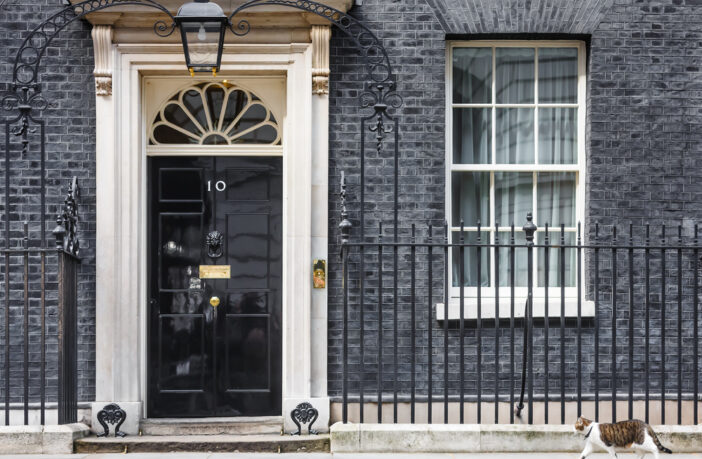It’s a week since Rishi Sunak made the surprise appointment of former PM David Cameron as foreign secretary, so we spoke to The Open University’s Dr Richard Heffernan, a Reader in Government, who specialises in British politics, to see what he makes of the situation.

Dr Richard Heffernan
There were raised eyebrows from political commentators when former prime minister David Cameron surprised them as they saw him stroll along Downing Street and knock at the big black door the morning of Rishi Sunak’s cabinet reshuffle.
What we didn’t know then was the newly anointed Lord Cameron had already been shifted into Braintree MP James Cleverly’s seat of Foreign Secretary and the latter had grabbed the role of Home Secretary in the musical chairs at the Cabinet table.
To the lay person, it too was eyebrow-raising stuff to see a former PM returning to government when he had given up being a sitting MP seven years ago.
To Richard Heffernan it was this: “a balloon trick”, to distract the public from the dismissal of Suella Braverman. He says it’s rumoured that Mr Sunak first asked William Hague, now Lord Hague of Richmond, to return to the role, but he refused, although he suggested Mr Cameron.
“Mr Sunak,” says Richard, “may well think he can trust Cameron sufficiently enough to attend to international affairs, which takes up a great deal of time for this prime minister, so he can look at seeing if he can do anything to save himself on the domestic front.
“That might be part of his reasoning. We don’t know. I really can’t even begin to understand why he brought Cameron back.”
Yet he added that it looked like he didn’t think there was anyone more suitable from within the House of Commons. Even if Cameron were “able”, he brings “a lot of baggage with him”.
Richard says if he was unlikely to “make any gaffes” as Foreign Secretary, the former prime minister isn’t popular amongst Red Wallers and conservatives, who see his blend of neoliberal austerity and social liberalism as unappealing, to say the least.
“Do I think Cameron will being some stardust?” said Richard. “He won’t. Either political or electoral. And, polls suggest, perhaps the very opposite.”
It’s been done before
In terms of bringing someone back into the Cabinet when they are not a sitting MP, well that’s actually nothing new:
“It’s a constitutional convention that the prime minister and ministers come from the House of Commons, but it’s not a rule,” says Richard.
He pointed to recent history in the shape of Peter Mandelson who stood down as an MP in 2004 but returned to Gordon Brown’s Cabinet as business secretary, newly anointed as Baron Mandelson, in 2008, and the following year he was made First Secretary of State, which indicates seniority over all other secretaries of state.
But a look back at history shows that other members of the House of Lords to serve in one of the great offices of state included Lord Carrington, who was Margaret Thatcher’s foreign secretary (1979-82). Before then Alec Douglas Home, prime minister, 1963-64, was Ted Heath’s Foreign Secretary (1970-74), but Alec was then still an MP, not a Lord.
So why, when only one former prime minister has returned to a lesser political office since 1945, did Cameron return?
“I don’t know why other than he likes the limelight and his post-premier career has not been successful.”
He said Lord Cameron had a low profile but he speculated that his appointment signals there won’t be an early General Election because, in his opinion, Lord Cameron wouldn’t have agreed to take on the job if it was just for five months until the next election.
“In private, he must have said ‘I’m not going this side of next October’, and that’s the only piece of interesting information I can draw from this appointment.
“To use a well-worn phrase, this reshuffle is similar to rearranging the deckchairs on the Titanic, as it sank beneath the waves. The most significant decision it signifies is Sunak’s abrupt move to the left.
“This was demonstrated by the dismissal of the plucky and brave Suella Braverman, with whom Sunak clashed, and who’s head was demanded by all sorts of non conservatives. And by the appointment of centrist pro Sunak technocrats to key ministries.”



